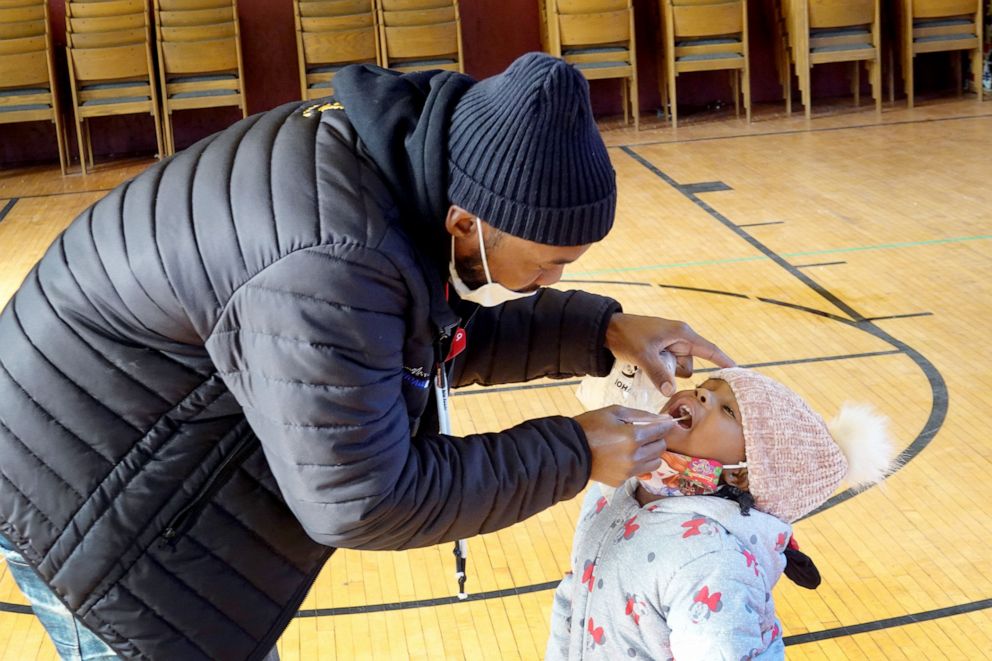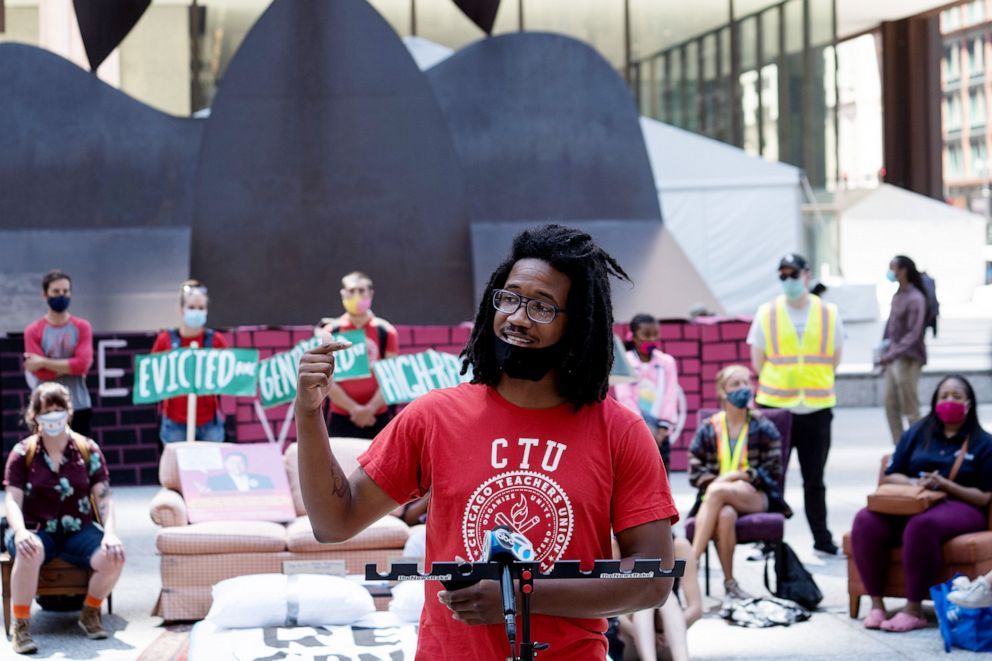Chicago rapper Vic Mensa spotlights plight of homeless youth facing pandemic in winter
The artist joined with a local shelter to show the threats the community faces.
As COVID-19 cases surge around the country, thousands of potential evictions are on the horizon, and cities are growing more frigid. One Chicago rapper is working to raise awareness of the effects that confluence will have.
In honor of National Homeless Youth Awareness Month, hip-hop artist Vic Mensa, who hails from the South Side of Chicago, joined forces with Covenant House Illinois, a shelter in the Bronzeville neighborhood that offers services to Black homeless youth, to lead this year’s annual “Sleep Out: Chicago.” The event will be live-streamed on social media.
“It’s bone-chillingly cold. It’s excruciatingly cold in Chicago in the wintertime, and people freeze to death,” Mensa told ABC News on Wednesday.
“I like the concept of a sleep out, because this is something that is an everyday reality for people. But for those of us with a home, you know, with a roof over our head, it's like a daunting challenge. It's a heavy ask. I asked a lot of my friends to do it, and they were not there,” he added. “Because to put yourself in these people's shoes for one night, you know how painful that can be.”
Members of Mensa’s SaveMoneySaveLife nonprofit foundation, some of his friends and the rapper himself will spend the night on the streets of Chicago on Thursday night through Friday morning to raise funds and awareness about the plight of homeless youth.
Chicago hip-hop artist Chance the Rapper urged his fans to donate to the cause.
Covenant House has been hosting "Sleep Out: Chicago" annually to highlight the intensifying threat the homeless community faces, particularly in cold cities such as Chicago. But this winter, amid the COVID-19 pandemic, the heightened prospect of hospitalization or death is exacerbated.
An estimated 76,998 people experienced homelessness in Chicago throughout 2018, per U.S. Census data. According to the Chicago Coalition for the Homeless, “Chicagoans who identify as Black or African-American make up 61% of the total population experiencing homelessness in 2018.”

Across the country, Black communities have been disproportionately infected with the virus, and their residents have been killed at a disproportionate rate, according to several states' analysis of data.
Illinois public health officials reported 14,612 new confirmed and probable cases of COVID-19 and 168 deaths on Thursday, ABC's Chicago station WLS-TV reported. The number of deaths reported Thursday is the most in one day since 191 deaths were announced on May 13.
The total number of cases in Illinois is at least 621,383, with at least 11,178 deaths.
Mensa said that the group of those sleeping outdoors will be limited to 10 people in order to maintain social distancing and adhere to local COVID-19 guidelines.

Ahead of the sleep out, Mensa challenged his fans in an Instagram post on Thursday to each donate $10 toward the cause for every hour the group spends outside tonight.
“What you see in America, and in any society, is that your underclass is going to be disproportionately impacted by all blows that poverty deals," Mensa said, "and whether that's the pandemic or that’s eviction and lack of affordable housing, which play into each other and coexist, it is going to be affecting Black people at higher rates, because Black people have fewer protections."
The rapper said his nonprofit has been collecting food donations during the pandemic and has delivered more than 100,000 pounds of groceries to families in need, along with “thousands upon thousands of masks."




